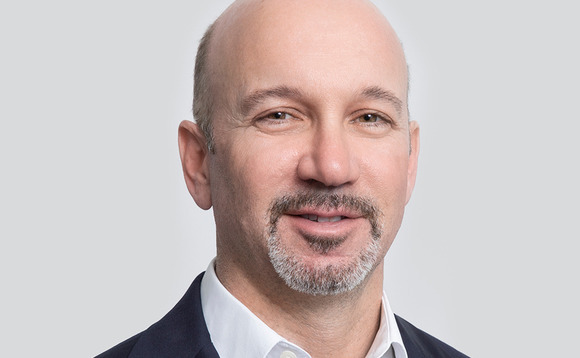
Q&A: Pemberton's UK head Eric Capp on direct lending's future

Eric Capp, the UK head at asset manager Pemberton, discusses how sponsors have been dealing with debt during the coronavirus crisis and his long-term view of the direct lending market with Katharine Hidalgo
Katharine Hidalgo: How have sponsors been acting for the health of their portfolio companies so far?
Eric Capp: We think they've been behaving well. So far, where new capital has been required, GPs have been putting it in. This has only been necessary in a small percentage of situations, but our sense is that GPs have been willing to support strong businesses.
The important thing is that, if a portfolio company was not performing well before the Covid-19 outbreak, the current environment could push them over the edge. Our view is that across the direct lending market, the full impact of the pandemic remains to be seen, but we feel good about our own portfolio. Over the longer term, it may take anywhere between six months to two years for companies to recover to original sponsor equity cases. The economic environment, in addition to central bank support for low interest rates, will be the ultimate driver and I would expect to see more defaults depending on the shape of the recovery.
KH: How is your strategy going to change in the wake of the coronavirus crisis?
EC: We continue to be focused on providing debt financing to high-quality, market-leading borrowers with solid fundamentals, operating in non-cyclical sectors and with excellent management teams. Our approach hasn't changed post-Covid-19 and we're going to do more of the same: lend capital to the core mid-market while being sensitive to the economic environment. It is no surprise that we'll be allocating capital to more defensive and resilient business models in food, healthcare and technology, and companies focused on non-discretionary spending.
We'll continue to use the same origination process as before with our network of local office investment teams speaking to intermediaries including sponsors, banks and advisers with whom we have built strong relationships over the years, and of course to some new ones in the same geographies we currently cover, but with even more of a defensive tilt and a sensitivity to the effects of the coronavirus pandemic.
KH: Do you expect debut private debt managers to enter the market in this environment?
EC: I would not expect many new entrants, even though I think 2020 direct lending vintages will perform incredibly well. In my view, unless you have the investing track record and are willing to make a massive investment in people and infrastructure, it is very difficult for new managers to enter the market, especially right now. New entrants can be nimble on the edges of the market, but I would be surprised if they had a lot of traction. In a mid-market deal, with a bilateral lending relationship, private equity and debt funds are co-dependent on each other, and for a sponsor to engage with a new private debt fund that it doesn't know well can be risky.
KH: Would you consider working with any GPs you haven't previously worked with today?
EC: There aren't many GPs we don't know as we cover around 200 sponsors, but if we didn't know them, we'd of course be willing to have a conversation. That being said, right now, we're focused on maintaining and building our existing relationships with sponsors.
KH: What is Pemberton focused on currently?
EC: We've been spending a lot of time looking at existing portfolio cash flows and looking at add-ons for portfolio companies. There are always opportunities to fund add-ons and there have already been some forced sellers due to Covid-19. We've also been working on new investment opportunities. We're fortunate to have a pan-European origination network of local offices, as it would be difficult to get deals done in Europe if you're stuck in London only.
New deals have been mainly more proprietary type investments for companies not affected by the outbreak of Covid-19, such as insurance platforms, e-commerce platforms, and food production businesses. We've also been evaluating some hung syndications in the broader syndicated loan market given the new issue leverage loan market is essentially closed. The competitive intensity for these investments is low and there are very few private debt funds with the capital and resources to do it, as they tend to involve large commitments above €200m.
Private debt funds getting involved in syndications wouldn't be a permanent feature of the market as we assume it will resume in its past form, but it's good to harvest these opportunities where available.
Latest News
Stonehage Fleming raises USD 130m for largest fund to date, eyes 2024 programme
Sponsor acquired the public software group in July 2017 via the same-year vintage Partners Group Global Value 2017
Stonehage Fleming raises USD 130m for largest fund to date, eyes 2024 programme
Czech Republic-headquartered family office is targeting DACH and CEE region deals
Stonehage Fleming raises USD 130m for largest fund to date, eyes 2024 programme
Ex-Rocket Internet leader Bettina Curtze joins Swiss VC firm as partner and CFO
Stonehage Fleming raises USD 130m for largest fund to date, eyes 2024 programme
Estonia-registered VC could bolster LP base with fresh capital from funds-of-funds or pension funds









